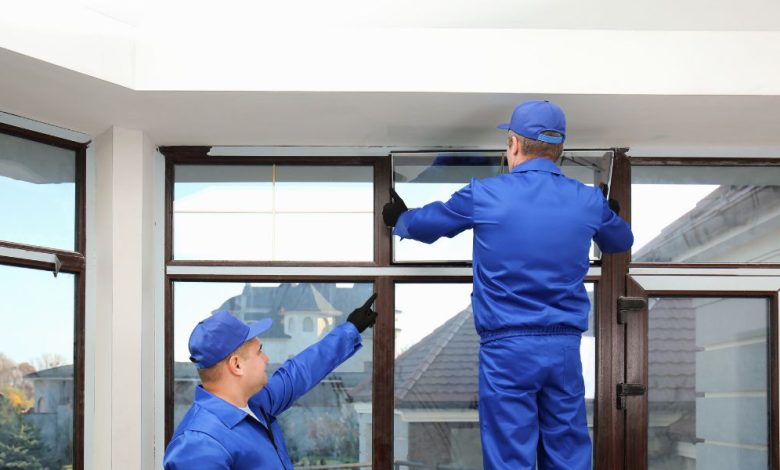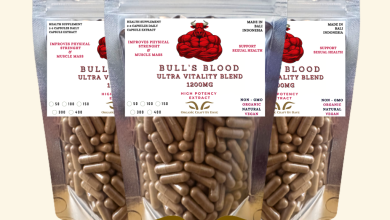The Best Window Materials for Your Installation Project
The Best Window Materials for Your Installation Project

You might think that choosing window materials is a straightforward task, but there’s much more to it than just picking a style. Each material—whether it’s vinyl, wood, fiberglass, or aluminum—brings unique benefits and challenges to your project. Understanding these differences is crucial, especially when you consider factors like energy efficiency and maintenance. As you weigh your options, you may find that your initial preferences shift based on your specific needs and budget. So, what should you prioritize to ensure you make the best choice?
Overview of Window Materials
When it comes to choosing window installation, you’ve got several options that each offer distinct advantages and drawbacks. Common materials include wood, aluminum, fiberglass, and composite. Each has unique sustainability factors to consider; for instance, wood is renewable, but its maintenance can affect longevity.
Aluminum is durable and recyclable but may have a higher carbon footprint during production.
Your installation techniques can also vary based on the material you choose. For example, wooden frames often require precise fitting and sealing methods to prevent moisture damage, while aluminum frames can offer quicker installation due to their lightweight nature.
Ultimately, understanding these materials will help you select the best option for both performance and environmental impact.
Vinyl Windows
Vinyl windows are a popular choice for homeowners seeking a balance of affordability, energy efficiency, and low maintenance. One of the key vinyl benefits is their resistance to moisture, which prevents rotting and warping.
They’re also energy-efficient, helping you save on heating and cooling costs. When considering installation, ensure the window frames fit tightly to minimize air leaks.
Use proper flashing techniques to direct water away from the window, and check for level and plumb during installation to ensure a proper seal.
Lastly, choose insulated vinyl frames to enhance thermal performance. Following these installation tips will help you maximize the durability and efficiency of your vinyl windows, making them a smart investment for your home.
Wood Windows
Wood windows offer a timeless aesthetic and exceptional insulation properties, making them an attractive option for many homeowners. Their natural beauty enhances various design styles, from traditional to contemporary.
Additionally, wood windows boast strong sustainability factors, especially when sourced from responsibly managed forests.
When considering wood windows, keep these points in mind:
- Durability: Properly maintained wood windows can last for decades.
- Energy Efficiency: They provide excellent thermal insulation, reducing heating and cooling costs.
- Customization: Wood windows can be easily painted or stained to match your home’s décor.
Ultimately, choosing wood windows can elevate your home’s appearance while promoting environmental responsibility.
Just remember, regular maintenance is key to preserving their beauty and functionality.
Fiberglass Windows
Fiberglass windows are quickly gaining popularity among homeowners due to their impressive strength and energy efficiency.
One of the key fiberglass benefits is their durability; they resist warping, cracking, and fading, making them an excellent long-term investment. Additionally, fiberglass windows offer superior insulation, helping you save on energy bills.
However, it’s important to consider fiberglass drawbacks as well. They can be more expensive upfront compared to vinyl and wood options, which might strain your budget. Installation may also require professional assistance due to their weight and specific handling needs.
Ultimately, if you’re looking for a robust, energy-efficient window solution, fiberglass windows present a compelling choice, provided you’re prepared for the initial investment.
Aluminum Windows
Offering a sleek, modern aesthetic, aluminum windows are a popular choice for both residential and commercial properties. They combine style with functionality, providing numerous aluminum benefits that enhance your space.
You’ll appreciate their durability, energy efficiency, and low maintenance requirements.
Consider these aluminum styles for your project:
- Frameless: Offers an unobstructed view, ideal for contemporary designs.
- Thermal Break: Provides better insulation, improving energy efficiency.
- Sliding: Space-saving and easy to operate, perfect for smaller areas.
With a variety of designs and finishes available, aluminum windows can complement any architectural style.
Comparing Durability
When comparing the durability of window materials, it’s essential to consider how they withstand various environmental factors.
You’ll want to evaluate their weather resistance, as exposure to elements like rain, snow, and UV rays can significantly impact longevity.
For instance, vinyl windows typically offer a high level of weather resistance and require minimal maintenance, leading to a longer lifespan.
On the other hand, wood may need regular treatment to prevent rot and warping, affecting its durability over time.
Lifespan comparison shows that fiberglass windows often outperform both vinyl and wood, providing excellent resistance to extreme temperatures and physical impacts.
Ultimately, selecting the right material based on these durability factors will ensure your windows remain functional and aesthetically pleasing for years to come.
Energy Efficiency Ratings
Understanding energy efficiency ratings is crucial for making informed decisions about window materials.
These ratings provide insights into the energy performance and insulation properties of windows, which can significantly impact your home’s energy consumption.
When evaluating energy efficiency, consider these key factors:
- U-Factor: Measures the rate of heat transfer. Lower values indicate better insulation properties.
- Solar Heat Gain Coefficient (SHGC): Indicates how much solar heat enters your home. A lower SHGC is preferable in hot climates.
- Visible Transmittance (VT): Measures the amount of light that passes through the window. Higher ratings allow more natural light, contributing to energy savings.
Aesthetic Considerations
A window’s aesthetic appeal plays a vital role in enhancing your home’s overall look and feel. When choosing window materials, it’s essential to consider current style trends that align with your home’s architecture.
For instance, sleek, modern frames may suit contemporary designs, while traditional wood options can complement classic styles.
Additionally, exploring various color options can significantly impact your home’s exterior and interior ambiance. Neutral tones often blend seamlessly with most decor, while bold colors can make a striking statement.
Don’t forget to think about finishes as well; matte or glossy surfaces can alter the light reflection and overall appearance.
Cost Analysis
Choosing the right window materials involves a careful cost analysis to ensure you stay within your budget while maximizing value.
Understanding your budget constraints is essential, as this impacts your choices significantly.
You should consider:
- Initial Costs: Evaluate the upfront expenses for different materials.
- Energy Efficiency: Determine potential savings on energy bills over time.
- Lifespan and Durability: Assess how long each material lasts, making it a long-term investment.
Maintenance Requirements
When it comes to window materials, maintenance requirements can significantly impact your long-term satisfaction and costs. Each material demands different cleaning techniques and upkeep strategies.
For instance, vinyl windows typically require minimal maintenance, needing only occasional washing with soap and water. In contrast, wood windows may necessitate regular painting or staining to prevent rot and decay, influencing their lifespan expectations.
Aluminum frames are resistant to corrosion but may need periodic cleaning to maintain their appearance. Understanding these maintenance needs will help you choose the right material that aligns with your lifestyle and budget.
Ultimately, selecting a window type with manageable maintenance can enhance both durability and your overall satisfaction with your installation project.
Why You Choose Pure Energy Window Company
Pure Energy Window Company is a locally owned and operated business based in Michigan, dedicated to providing top-notch home improvement services to the residents of Sterling Heights. With a focus on quality and customer satisfaction, they specialize in professional window installation, ensuring your home is both beautiful and energy-efficient. Additionally, the company offers expert entry door replacement services, helping to enhance your home’s curb appeal and security. Their offerings also include attic insulation to improve energy efficiency and comfort, along with roofing services designed to protect your home from the elements. Trust Pure Energy Window Company for all your home enhancement needs in Sterling Heights.
Conclusion
In conclusion, when choosing window materials for your installation project, weigh durability, energy efficiency, and maintenance against your budget and style preferences. Whether you opt for the affordability of vinyl, the elegance of wood, the strength of fiberglass, or the sleekness of aluminum, you’re sure to find the perfect fit. Remember, picking the right windows can transform your home into a fortress of comfort and style—making it feel like a five-star retreat right in your neighborhood!









